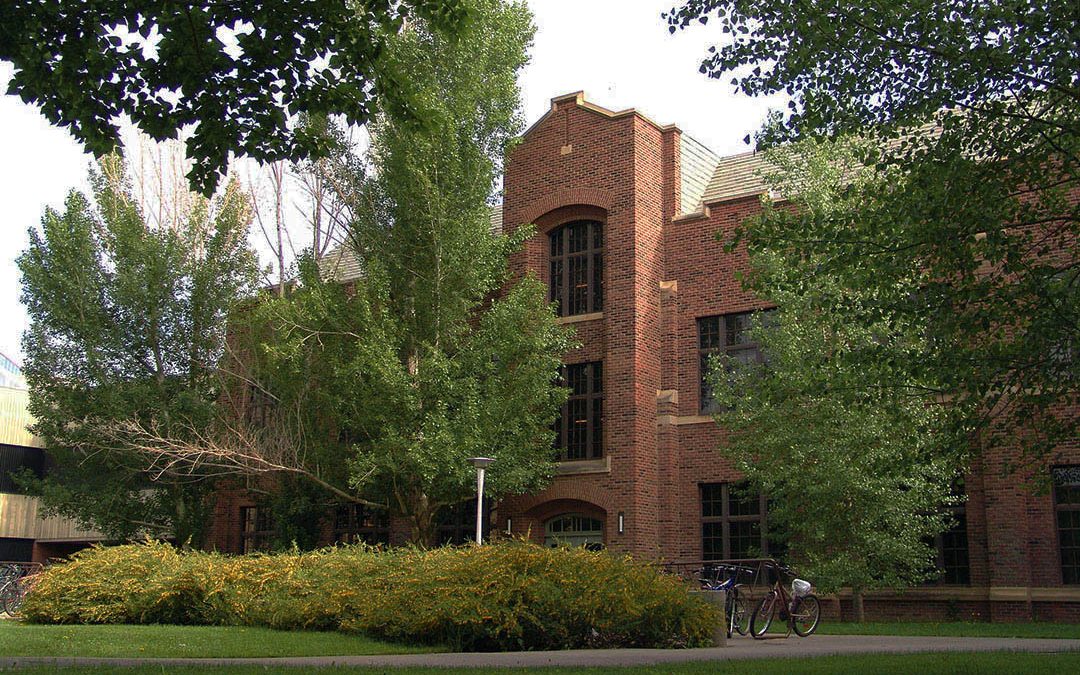An Inuk university professor says post-secondary institutions must find ways to handle allegations of people falsely claiming Indigenous heritage for financial gain.
She made the comment in light of Nunavut Tunngavik Inc.’s recent announcement it is investigating what it called the “possible fraudulent enrolment” of two women Inuit beneficiaries under the Nunavut Agreement.
Amira Gill, left, and her twin sister Nadya are seen in screen grabs from a June 2021 CTV News report. (Photos courtesy of CTV Ottawa)
Karla Jessen Williamson, an Inuk from Greenland, is a professor at the University of Saskatchewan and has contributed decades worth of academic research on various Inuit topics.
She has a PhD in anthropology and says she is the first Inuk to become a tenured professor at a Canadian university.
Jessen Williamson said she was shocked to read the news that NTI, the organization responsible for enrolling Inuit as beneficiaries of the Nunavut Agreement, is looking into whether Queen’s University graduates Amira and Nadya Gill had fraudulently been enrolled as Inuit beneficiaries by their mother, Karima Manji.
The Gill sisters earned their degrees from Queen’s with financial help from Indspire, a national charity that provides support to Indigenous post-secondary students.
Jessen Williamson describes her own early education as a process of forced assimilation into Danish culture, away from her Inuit community. In her post-secondary career, which was mostly spent at the University of Saskatchewan, she said she got no financial support.
“They have no idea what hell we went through … [This] has been very, very emotional because we were denied to be Inuit,” she said.
“For these two individuals to be given funding, where I didn’t get any funding specifically for all the work that I have done in university … What audacity do they have to do that?”
Stories of people falsely claiming Indigenous heritage are not new to Jessen Williamson.
Even at her own university, a medical professor, Carrie Bourassa, stepped down last year over questions about her self-proclaimed Métis heritage. At the time, Bourassa said she did not have evidence of her Métis heritage but was working to piece together her ancestry.
That scandal, covered by national news media, led to the university launching a task force to verify claims of Indigenous identity of all its staff and students.
Jessen Williamson said rigorous reviews of people’s identity would help ensure that someone who is not Indigenous is not taking up space and funding that should be used for supporting Indigenous students’ education.
“For the institutions that have been awarding [bursaries to] them, they need to do a better job, and in many ways, it’s opening up the sort of can of worms to do that: each of the institutions making sure that they do it the right way,” she said.
“I just know I went through hard times, through these various institutions to be able to say who I am, and to do the knowledge system that I have of my ancestors.”
Amira Gill told Nunatsiaq News that her Inuit heritage comes through the Noah and Hughes family in Iqaluit.
But Noah Noah, whose mother is Kitty Noah and father is the late Harry “Bud” Hughes, said the Gills have no relation to his family.
Questions about the Gill sisters’ Inuit heritage erupted on social media about two weeks ago.
After the controversy started but before NTI announced its investigation, Amira Gill told Nunatsiaq News the NTI enrolment cards she and her sister have were given to them “at a young age” and they have “no knowledge of the enrolment process.”
She said Nunatsiaq News has not revealed the identity of the people making the allegations on social media, nor assessed their credibility.
Amira Gill has not responded to multiple emails requesting comment on NTI’s investigation. Nunatsiaq News has not been able to contact Nadya Gill or Karima Manji at all.
Queen’s University spokesperson Julie Brown said the university is in the process of developing an improved Indigenous-specific admission and verification process.
The school does not comment about current students, staff, or faculty, she added.
Nunavut MP Lori Idlout tweeted her support for the son of Kitty Noah for speaking out about allegations the mother of Amira and Nadya Gill used his family to gain Inuit beneficiary status. (Image courtesy of Lori Idlout/Twitter)
Several people on social media who use their platforms to call out so-called “pretendians” (a slang term for people accused of pretending to be Indigenous) were raising questions about the Gills.
Nunavut MP Lori Idlout took to Twitter to support a statement from the Noah family.
“Qujannamiik for having the strength to [expose] the Gill twins,” Idlout, an NDP politician, said.
“Your family’s statement helps ensure Kitty’s protection while ensuring that fraud is exposed.”
Singer Tanya Tagaq posted several tweets about the Gill twins, and has called on Indspire to respond.
“When people who are not Inuit unethically claim these supports and resources they are taking opportunities away from Inuit,” Tagaq said in a tweet on Tuesday.
“I know of some Inuit who will not claim all they can because they believe someone else needs it more than they do.”
Brandon Meawasige, Indspire’s communications director, emailed Nunatsiaq News on March 30 – before NTI announced its investigation – but has not responded to subsequent requests for information about whether it would investigate funding it gave to the Gill sisters or how much money they received.
The Gills qualified for Indspire funding because they provided their NTI enrolment, he said. Indspire requires students to demonstrate membership in a recognized Indigenous nation, community or organization.
After NTI announced its investigation into what it called “possible fraudulent enrolment,” spokesperson Kevin Kablutsiak said the organization would not comment further.
Nunatsiaq News has asked the RCMP if it is part of the investigation, but its Nunavut spokesperson has not yet said whether or not it will be investigating.
By: Jeff Pelletier, Local Journalism Initiative Reporter, Nunatsiaq News
